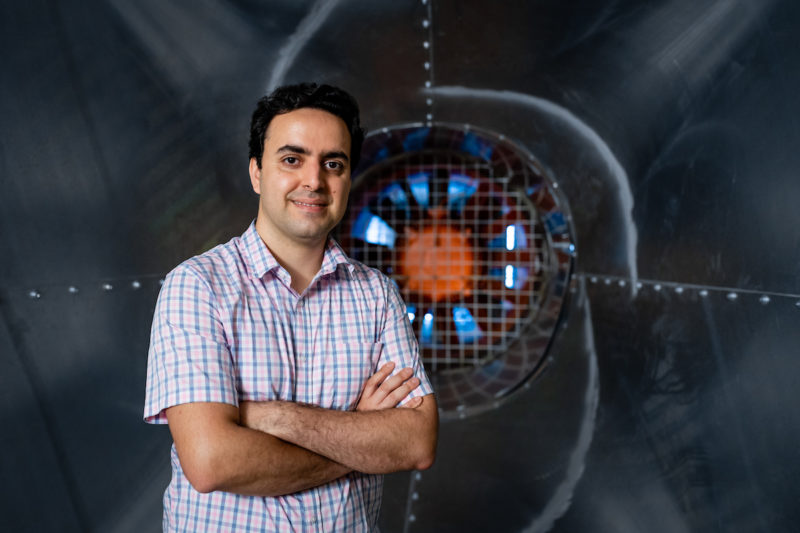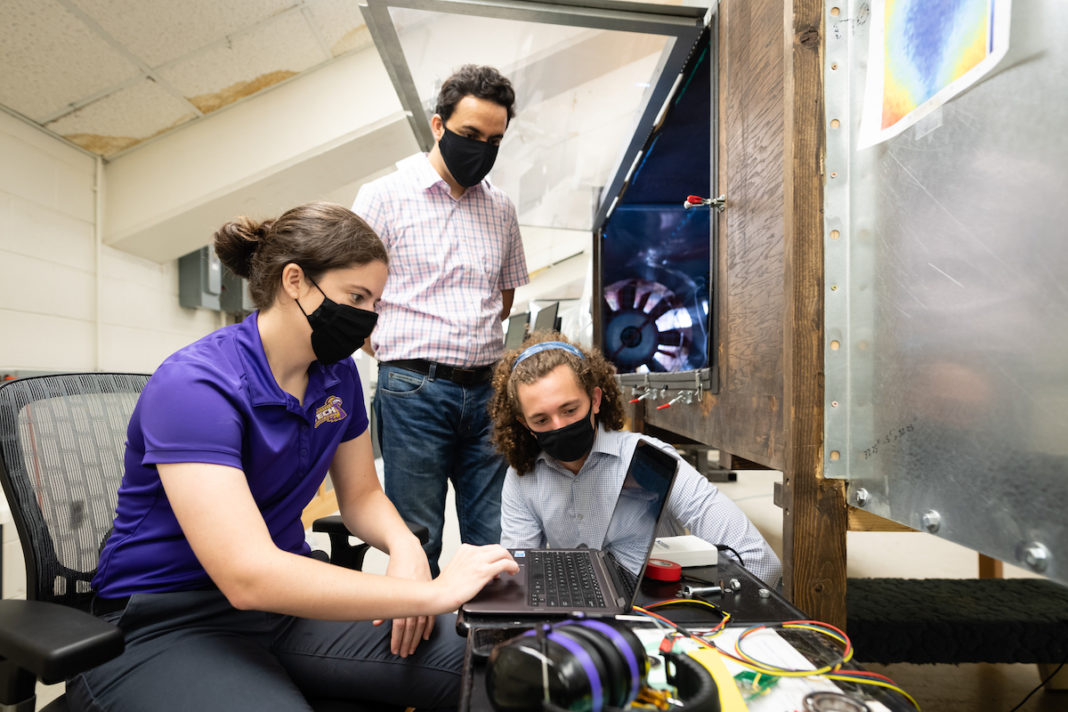COOKEVILLE — Ahmad Vaselbehagh has always had an interest in physics. An assistant professor at Tennessee Tech in mechanical engineering, Vasel found fluid mechanics to be an engineering discipline that is close enough to physics to be the focus of his research.
“I found fluid mechanics as basically this kind of sweet point between fundamentals and applications,” said Vasel. “My research is basically focused on fundamentals of fluid mechanics and heat transfer for energy generation and storage applications.”
Vasel, who has been at Tech since 2017, is able to share his research with students through the use of the Fluid Mechanics Research Lab located on the east side of Tucker Stadium in room 235.

“The lab is mainly a wind tunnel lab,” Vasel said. “The entire wind tunnel is more than 20 meters long. That’s the main facility that we have in the lab. But then we also have a lot of different sensors that basically can be used at the test section.”
In the FMRL, Vasel and his students develop numerical simulations and analytical models in concert with laboratory and field experiments, seeking to deepen the understanding of fluid mechanics for more accurate prediction and control of flows for engineering applications.
“When the students go to the lab, they can see for themselves in real world, they watch that pattern,” Vasel explained. “That makes a lot more sense of showing them like, let’s say a kind of a simulated animation in the classroom. So, it makes more sense to them and it excites them to basically get into research.”
Hollee Sadler is a graduate student in mechanical engineering who works in the FMRL. She is usually the first person to come into the lab and get it ready for whatever tests will be administered that day.
“The first thing we do is open up all the doors because there is a pressure drop that happens whenever you run the tunnel, and so we need to get the atmosphere involved,” said Sadler explained. “Once we open up all the doors we get the laptop plugged up and then we plug the probe up and turn it on and gather our data. All the data is sent to a laptop we have it plugged up to, and then we take that data into an Excel spreadsheet and you can see the plots and different things like that, and then you take it further into more software and analyze it further.”
One of the students who enjoys working in the FMRL is Andy Davis, a senior mechanical engineering major.
“I get a lot of valuable experience just through observation and through doing a bunch of stuff that I would never get to do in labs or in classrooms,” said Davis. “I got to solve a bunch of problems that, again, would never have come up otherwise.”
Research in the lab focuses specifically on turbulence, vortex dynamics, bubble dynamics and optimization for energy conversion and storage applications including: aerodynamics of wind turbines, wake loss modeling, wind farm layout optimization and wind power forecasting; and aerodynamics of solar PV plants; marine hydro kinetic devices; and mechanical energy storage technologies.
Vasel believes the research taking place is beneficial not only to the students, but to society as a whole.
“I think I’m going to continue along this line because, you know, we know that the entire world is trying to take the lead in renewable energy generation, and the U.S. is trying to take the lead there,” said Vasel. “The future is bright for wind energy, and I think at least for the forseeable future, I’m going to follow that line of research.”
For more information on Tech’s Fluid Mechanics Research Lab, go to https://www.tntech.edu/engineering/programs/me/fluids-lab.php.









